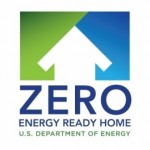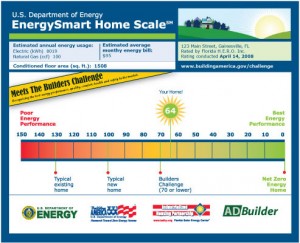By Danielle Daniel
October 8, 2014

Southeast Volusia Habitat for Humanity and Habitat for Humanity of South Sarasota County—affordable housing partners of the University of Central Florida’s FSEC—were the honored recipients of U.S. Department of Energy (DOE) Zero Energy Ready Home Leading Affordable Builders awards in September. A total of 28 industry leaders (including six affordable builders) were recognized at the 2014 Housing Innovation Award ceremony at EEBA’s Excellence in Building Conference in St. Louis, Missouri. DOE Housing Innovation Awards acknowledge the outstanding efforts of contractors and builders to design and construct high performance, zero energy ready homes.
Energy efficiency, comfort, and durability are key components of DOE Zero Energy Ready Homes. To qualify for this certification, homes must meet stringent requirements in seven categories. To reduce energy consumption and resulting energy costs, these high performance homes must achieve a very low score on the Home Energy Rating System (HERS) Index. The closer the score is to zero, the less energy is needed to run the home.
